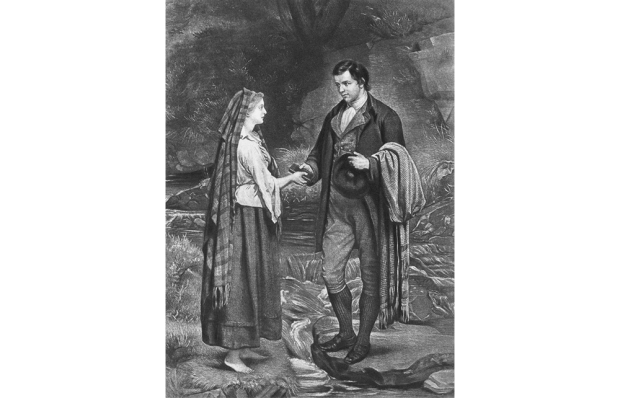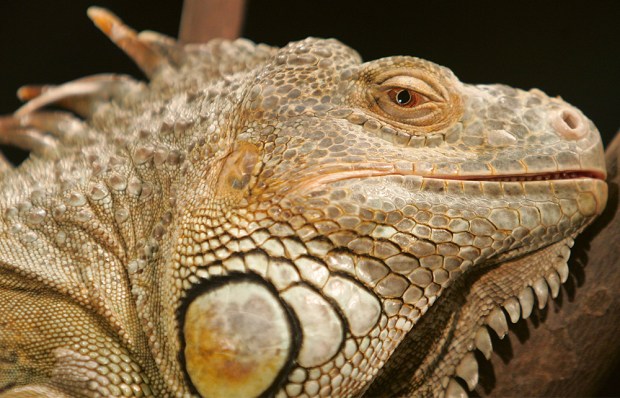In Competition No. 3061 you were invited to imagine a well-known author who doesn’t normally write in the genre having a go at science fiction and submit an extract from the resulting work.
In a 2015 interview, Ursula K. Le Guin, always a staunch and eloquent defender of the genre, took a pop at writers of literary fiction who move into sci-fi and simply think that ‘they can use some of the images and tropes and so on from science-fiction and stick them in their book and put it on another planet or in a spaceship or something…’ Although a fair few entries this week were — understandably — guilty as charged, they were clever and entertaining nonetheless.
Commendations go to Carl Tanner, Brian Allgar, David Silverman and Frank McDonald, who were unlucky losers. The winners take £30, except Bill Greenwell who pockets £35.
Home, sweet Home! Our Krypton-driven Navigator passed into the orbit of Epsilon B at 11 o’clock, and my dear wife Carrie concocted a vitamin booster for the occasion. I unpacked my frock-tunic, and wore it on the control deck. One of the newer robots, a quite impudent model of Galaxy 31 design, began to snigger, which I soon ascertained was an electrical setting fashioned by one of Lupin’s friends. I had it deactivated by Mr. Below, the rocket engineer who inhabits the cargo hold. I amuse him whenever I can, calling ‘Watch out, Below!’, something he finds tolerably amusing.
It promises to be a beautiful artificial morning. Skarg elders have devised a colossal indoor ‘outdoors’, complete with balmy breezes, and illusions of distant oceans. I told Carrie we would do well to take ‘a virtual dip’, and that there should be no need for bathing-costumes. This remark was unhappily misunderstood.
Bill Greenwell/George and Weedon Grossmith
Jeeves shimmied across the cabin. I don’t know if you’ve tried shimmying when wearing a spacesuit, but Jeeves managed it.
‘The helmet a little further back, sir.’
I was about to reply that I liked the rakish tilt, when I realised the rumminess of our posish.
‘Jeeves, if you’re here, who’s driving this thing?’
‘I have set the controls to automatic, sir. We will not reach Mars until after luncheon.’
At lunch, something was missing.
‘I say, Jeeves, where’s the salt cellar?’
‘I fear the lack of gravity makes shaking salt unwise, sir.’
I’ve always fancied time travel, mainly to find out who won the 3.40 at Goodwood before the race, and I know all about alien life-forms, what with Aunt Agatha, but why were we going to Mars?
‘To investigate the discovery of liquid there, sir.’
‘You mean water?’
‘No, sir.’
‘No?’
‘No, sir. It appears to be gin.’
Nicholas Hodgson/P.G. Wodehouse
It was the best of time machines; it was the worst of time machines. The best for speed and power, certainly, for it carried you back and forth faster than any four-horse chaise you could hire for love or money. The worst too, though, because, as Mrs Bollaby remarked, her several chins wobbling with indignation: ‘You never knew which blessed future it was going to take you to!’ Sometimes, from the multiverse of possibilities, it would whoosh you to a most agreeable future, full of plum pudding, benevolence and happy children. But then, as if in spite, it would transport you to a futurity more sinister, to a divided England run by no-hopers and their toadies, where uncertainty ruled, where schools had become factories and the overcrowded prisons were in constant crisis. ‘Well!’ cried Mrs Bollaby sharply, ‘If that’s the future we’ve made, we should all be ashamed of ourselves!’
George Simmers/Charles Dickens
‘It would have been his last voyage anyway.’ Henley paused. His listeners sat silent in the darkness, rapt by his tale. ‘Manson had long since wearied of lunar trips, oppressed by the immense, futile nothingness of space. As a young man he had been caught up in the rabid excitement of the Great Moon Rush, stimulated by the energy pulsating around its rapacity. Now, although at an age beyond any appeal of glamour, the skipper in him could not forgo giving Silene a last launch before the breakers set about her. With the prospectors aboard, she was headed for Mare Tranquillitatis but the propellant unaccountably failed and she was leashed by gravity to whirl in endless orbit on the very brink of space. When the craft was eventually recovered, it was a charnel house. Written in blood, possibly not his own, the last words in Manson’s log were: “Nihil ex nihilo”.’
W.J. Webster/Joseph Conrad
With air-conditioning on the fritz, my office was a tropical swamp where you could breed killer mosquitoes. The client’s card was soggy in my hand.
‘My wife’s been abducted,’ Mr Albert Bloodworth of Pasadena announced. ‘These creatures from space. They took her. Think I’m screwy?’
I shook my head — not hard, but still shedding a spray of sweat into the general humidity. These cases were growing. Ever since the Venusians had perfected the multiversal neonuclear accelerator, outdating Earth science, there’d been what the rags were calling ‘interplanetary panty raids’. Some said the women were willing, but who can read a woman’s mind? Not Marlowe.
‘Mr Bloodworth,’ I said, ‘I’ll take your case. But I won’t kid you. You’re up against powerful forces.’
That satisfied him, but I worried. He’d sat there in heat that would roast a hog and not perspired once.
Mr Bloodworth was an alien himself.
Basil Ransome-Davies/Raymond Chandler
No. 3064: living dangerously
According to a recent letter in the Times, patent leather shoes were outlawed at a British girls’ public school as recently as the 1980s, lest they reflect undergarments. You are invited to supply a newspaper leading article exposing the hitherto unsuspected corrupting influence of a seemingly innocuous everyday item. Please email (wherever possible) entries of up to 150 words to lucy@spectator.co.uk by midday on 29 August.
Got something to add? Join the discussion and comment below.
Get 10 issues for just $10
Subscribe to The Spectator Australia today for the next 10 magazine issues, plus full online access, for just $10.
You might disagree with half of it, but you’ll enjoy reading all of it. Try your first month for free, then just $2 a week for the remainder of your first year.













Comments
Don't miss out
Join the conversation with other Spectator Australia readers. Subscribe to leave a comment.
SUBSCRIBEAlready a subscriber? Log in